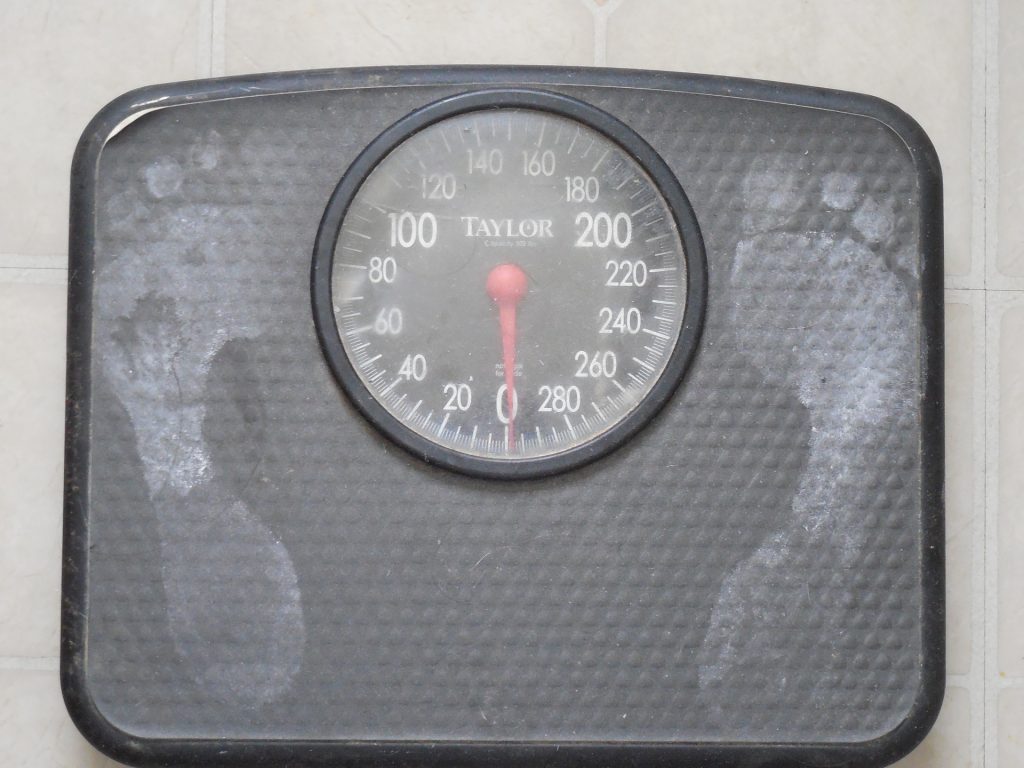 Setting goals is something that most humans do naturally. We all aspire to greater things and subconsciously we set goals to achieve these objectives. It is common to set goals for family life, at work and in hobbies. Likewise, setting goals for weight loss is also common, and in many weight loss type clubs, goal setting is recommended. Setting goals for weight loss is highly important, and I agree that without goals weight loss becomes far less likely. However, with regard weight loss, most people unfortunately set either unrealistic goals or use goals that are not within their control, and this can be a contributory factor in the disillusionment that occurs with weight loss. The most common type of goal set by those wishing to lose weight is an amount of weight lost within a set period of time. Despite the popularity of this sort of goal I would strongly recommend that this be avoided for three reasons. Firstly, the goal is out of the control of the individuals. Secondly, the goal is not specific. Thirdly, the goal may not be achievable.
Setting goals is something that most humans do naturally. We all aspire to greater things and subconsciously we set goals to achieve these objectives. It is common to set goals for family life, at work and in hobbies. Likewise, setting goals for weight loss is also common, and in many weight loss type clubs, goal setting is recommended. Setting goals for weight loss is highly important, and I agree that without goals weight loss becomes far less likely. However, with regard weight loss, most people unfortunately set either unrealistic goals or use goals that are not within their control, and this can be a contributory factor in the disillusionment that occurs with weight loss. The most common type of goal set by those wishing to lose weight is an amount of weight lost within a set period of time. Despite the popularity of this sort of goal I would strongly recommend that this be avoided for three reasons. Firstly, the goal is out of the control of the individuals. Secondly, the goal is not specific. Thirdly, the goal may not be achievable.

The bathroom scale is not a good measure of fat loss and setting goals using a bathroom scale is to be discouraged. Focus instead on achievable nutritional goals that are within the influence of your behaviour.
Goals must be realistic and within the grasp of the individual. Goals that are too vague, too difficult or out of the control of the individual are not good goals to set. Aspiring to lose a set number of kilograms or pounds of weight per week is not a good goal because there are too many factors that can influence the end point, and often this type of goal is highly variable between individuals. Another problem with this type of goal is that weight is not a useful indicator of progress, as it can include a loss of skeletal muscle. The goal is also therefore not specific. People also set unrealistic amounts of weight to lose, based on anecdotal evidence they have from the media and advertising. Even under the optimal conditions a genetically normal person can only expect to lose around 1 kg a week without causing significant detriment to their long term health. Any more weight that this will contain a very large amount of skeletal muscle, and this will have serious implications for maintaining any lost weight.

Writing down your goals will help you remember them and will make it far more likely you will achieve them. Make goals specific, realistic and achievable. Make a series of subgoals to get to a major goal so that you gain continual feedback to maintain motivation.
A much better goal is to forget weight and focus on body fat. Fat is more specific to the actual final objective because it is a direct measures the factor of interest. A set of skin fold calipers is therefore a far better measure of progress than a set of bathroom scales. Also instead of setting goals with respect to actual body changes, it is best to limit the goals to things that are more controllable. Setting a goal to consume no sugar is a more realistic and achievable goal than a vague goal about losing weight. Setting the goal to consumes 5 pieces of fruit or vegetables each day, and to drink 5 glasses of water is a more realistic goal than arbitrarily focussing on the bathroom scales. Setting realistic and relevant nutritional goals is therefore far more helpful that focussing on weight loss. Achieving these nutritional goals will likely ensure that the skin fold calipers maintain a reduction in thickness, thus providing feedback that the weight loss strategy is moving in the right direction. So be realistic and specific in all weight loss goal setting.
RdB
